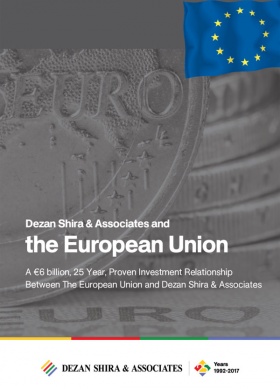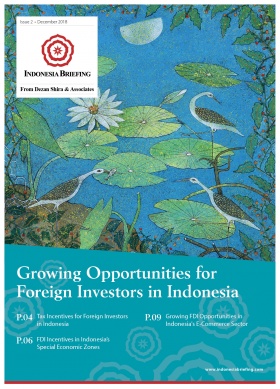Indonesia’s FTA with the European Free Trade Association: Salient Features
Indonesia signed a Free Trade Agreement (FTA) with the European Free Trade Association (EFTA) states on December 16, 2018. The EFTA comprises of some of the world’s wealthiest nations – Iceland, Liechtenstein, Norway, and Switzerland. Named the Indonesia-EFTA Comprehensive Economic Partnership Agreement (CEPA), the trade pact will come into force after it has been ratified by the parliaments of the signatory countries.
The agreement covers among other things, trade in goods and service, intellectual property (IP) rights, government procurement and competition. It gives the EFTA states exclusive access to the relatively restricted Indonesian market, which is predicted to become one of the world’s largest with a fast growing middle-class population.
Indonesia-EFTA trade at a glance
The two sides exchanged goods worth more than US$1.1 billion in 2018.
While EFTA countries mainly export machinery, resources, pharmaceuticals, and chemicals, Indonesia mainly exports footwear, electrical machinery and clothing. However, agricultural products are also a very important export category for both sides, and were a reason behind the prolonged negotiations over the Indonesia-EFTA CEPA.Over the last five years, exports from EFTA to Indonesia grew on an average of 4.4 percent while Indonesia’s exports decreased by 1.2 percent. Indonesia is predicted to become the fourth largest economy globally by 2050 and, therefore, opens up a large market for the EFTA states to export their products. The Indonesian economy is in the need for high-tech equipment, especially machinery, and investments for further economic growth. EFTA states can benefit from manufactured and agricultural products that are produced at cheap labor costs in Indonesia.
Trade in Goods
Indonesia will eliminate tariffs on the majority of EFTA exports with entry into force and will do so gradually for all remaining products. In particular agricultural products, machinery, chemical products and pharma are all subject to tariff reduction.
On the other hand, EFTA states will eliminate the vast majority of tariffs on Indonesian products with entry into force. For Indonesia, tariff elimination on the export of agricultural products like palm oil, textiles and electrical machinery are major gains. However, palm oil is subject to partial quotas and a plan for sustainable palm oil production which is included in the sustainable development chapter of the agreement.
Trade in Services
Services are subject to a most-favored-nation treatment clause which provides that services by a signatory may not be treated less favorably as by any non-party. Excluded are member states of the Association of Southeast Asian Nations (ASEAN) on the Indonesian side and mostly European and European Union (EU) countries on the EFTA side. Areas covered are, amongst others, energy-related services, telecommunications and the financial industry.
Bilateral recognition of relevant standards, licensing or certification of service suppliers, education and other requirements shall be considered by any party. Natural persons as service provider shall be allowed to provide the committed service in other signatory states.
Investments
Several areas for investments are liberalized, where foreign investors under the Indonesia-EFTA CEPA may not be less favorably treated than nationals.On the EFTA side, especially investments in the F&B, manufacturing, chemical products and pharmaceuticals, as well as the resources industry, are liberalized. The vast majority of measures comes into force without barriers to investments. On the Indonesian side, the same areas are subject to liberalization.
However, liberalization comes with some minor conditions on both sides. Most EFTA nations require a minimum domestic share or seat in the board of directors when establishing a legal entity. Indonesia requires all natural or juridical persons of EFTA states that aspire to establish a commercial presence to take the form of a Perseroan Terbatas under the Indonesian Corporate Law. All investments shall commit a sum of more than US$700,000 excluding land and buildings.
Intellectual Property (IP) protection
IPs shall be treated no less favorably than domestic ones in the respective country. All measures undermining IPs like piracy shall be prevented by the signatory countries. IP protection covers in particular copyrights including computer programs, trademarks, Geographical Indicators (GIs), industrial designs, patents, plant varieties as well as undisclosed information.
Further Provisions
A section on sustainable development is included in the agreement.
It promotes the importance of tackling adverse economic issues as well as social development. Effective environmental and labor laws shall be implemented by the signatories. Sustainable forest, fisheries and aquaculture, as well as vegetable oil management, are subject to specific special commitments in standards and practices. Common provisions regarding government procurement are subject to further negotiations.Outlook
The Indonesia-EFTA CEPA is a mutually beneficial agreement for both parties. Indonesia benefits in particular from easier investment regulations for FDI and the possibility to access a market for their agricultural and manufactured goods. EFTA nations on the other hand benefit from the large market Indonesia offers with a fast growing middle-class that demands higher-value products and higher quality agricultural goods.
About Us
ASEAN Briefing is produced by Dezan Shira & Associates. The firm assists foreign investors throughout Asia and maintains offices throughout ASEAN, including in Singapore, Hanoi, Ho Chi Minh City and Jakarta. Please contact us at asia@dezshira.com or visit our website at www.dezshira.com.









